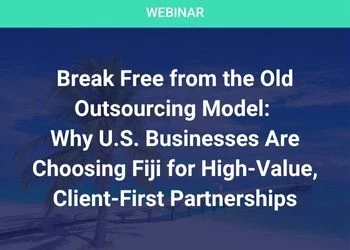Where is the Value in Online Networking?
Add bookmarkThe growth of social networks and tools such as LinkedIn, Facebook, Twitter etc has revolutionized the way we interact with our customers, peers and service providers, but the question of value is often brought to the table, from the executive level, when looking at these same social tools i.e. how can social tools deliver bottom line impact and drive organizational growth?
A recent survey of over 650 members from the global Shared Services & Outsourcing Network (SSON), membership uncovered several key perspectives from our executive community. Throughout this paper, social networks with minimal barriers to entry (i.e. Open social networks like LinkedIn) are analyzed and compared to restricted, paid-for social networks (i.e. Closed social networks such as SSON Collaborative Research Network) with the focus being on the value of online networking at the executive level.
Why do people join online networks?
Over the last 5 years, the amount of information flowing around the internet has reached saturation point– and with every man and his dog now publishing some form of content online* (videos, photos, podcasts, blogs, articles etc) it is literally becoming impossible for search engines such as Google and Yahoo to archive all the relevant web pages optimally (often resulting in a mixed-bag list of results with each search) - enter social networks.
A major benefit that social networks such as LinkedIn and Facebook provided when they began to gain popularity around 4 years ago was the ability to connect and unify people around similar interests, activities and experiences – cutting out the noise of unwanted marketing messages and non-related information that comes through search engines.
Over 66% of respondents to the SSON survey reaffirm that information sharing (case studies, learnings, experience etc) was the main reason they network online (see Fig. 1).
 Â
(click to enlarge image)
Fig. 1 What are your main reasons for networking offline / online?
The fact that people want to join (and grow their own) networks of like-minded peers to share and obtain timely, relevant information, comes as no surprise however, there is growing scepticism from the executive community around the value of the information that is being shared throughout these communities.
Fig. 2 Clearly shows that LinkedIn is by far the most popular online networking website for executives and professionals working in the Shared Services & Outsourcing space (with over 85% of survey respondents already members). The ease (or rather lack of pre-qualification) in which a LinkedIn member can add a new contact or join a networking group has begun to erode the effectiveness of information sharing online, adding to the growing scepticism that executives have of open communities; there is a perception that many LinkedIn members are simply collecting contacts as if they were baseball cards - people who have L.I.O.N or LinkedIn Open Networker in their title have been criticized of offering little back to their network in terms of value adding information.
 Â
(click to enlarge image)
Fig. 2 What online networking tools do you currently use for professional networking?Â
Open vs Closed Professional Networks
For the sake of this paper, we define an open network as having minimal barriers to entry, no costs or professional critera associated with membership and access to a plethora of global contacts (LinkedIn is an example of an open network).
A closed network on the other hand, is one which requires some form of pre-qualification or a cost barrier to limit the size of the network which ensures quality information exchanges take place – SSON Collaborative research Network is an example of a closed network (https://www.ssoncollaborative.com)
Open networks are generally useful for discovering new contacts, discussing basic business issues and uncovering trends but often fail to deliver insight from an executive perspective to warrant any kind of intimate interaction, with over 46% of SSON executive members only being active 1 to 5 hours per month on social networks (See Fig. 3).
Â
(click to enlarge image)
Fig. 3 How much effort do you put into networking online?Â
The executive community has defined the major inhibitors of effective online networking to deliver bottom line value as:
- Poor discussions or wrong people in the group (quality of discussion)
- Solution providers constantly pushing their products (quality of participants)
- People adding contacts for the sake of adding a new contact (e.g. LinkedIn’s - L.I.O.N)
- Sensitive information (who else is seeing this information?)
- See Fig. 4 for more.
 Â
(click to enlarge)
Fig. 4 What do you think the biggest inhibitors of effective online networking are (in terms of delivering bottom line impact for your organization)?Â
Through pre-qualification of members/participants, facilitation of conversations and the creation of an environment where all members feel safe to share sensitive information, closed networks (such as the SSON Collaborative Research Network) cut out the noise from vendors and non-value adding members to allow for honest, practitioner led peer-to-peer conversation – enabling executives to dig deeper into their business issues and discover insight from people who are in similar situations.
In closed networks, interactions often include scheduled webcasts, where a manageable number of members participate in regular facilitated discussions featuring a member company’s perspective on a topic of mutual interest, where a detailed understanding of the presenting companies experience is enhanced by comments and perspectives of other members via a highly interactive group discussion.Â
‘I’m too busy to join another LinkedIn, SHOW ME THE MONEY!’
A great article which adds a little more insight into how Executives view social tools is Jeff Cole’s Why Executives Hate Social Media. One of the key points from the article is that "Executives are ‘eagles,’ and unlike seagulls, eagles don’t flock" – executives rely on small, close networks of peers to discuss and bounce ideas off rather than connect with 1000 people across the industry.
Member interactions on the SSON Collaborative Research Network are focussed, high level and confidential - with no more than 750 participants in each topic area. In talking to some members, they seemed extremely pleased with the results they are getting and especially impressed with how quickly they can find viable solutions from their peers. Mary Passalacqua, Director of Accounting Services, Sealed Air advised, "SSON CRN leverages the latest technology and social networking ideas to help all of us improve the performance of our organizations. We all need to save time these days but still place a high value on finding those great ideas and learning’s from others".
SSON Collaborative Research Network members are also able to create polling questions to gather general consensus from the group at large. Each question and set of response options are professionally reviewed and sent only to members with experience or interest in the topic, ensuring a high response rate and reducing the likelihood of "survey fatigue"**.
SSON asked some of the existing members of the SSON Collaborative Research Network where they found value in being part of a closed network:
Â
"The service model has established the new benchmark for best practice sharing and networking. Their site combines the convenience and real time benefits of a best in class web resource, with the communications and connecting capabilities of a contemporary social networking site. SSON CRN puts valuable information AND experts/peers just clicks away." Mark Kingman, EVP Disney Worldwide Services.
"This is the future of networking and collaboration. There is no comparison to open networks. SSON Collaborative Research Network is a closed network that offers candid discussions using state of the art technology in a confidential facilitated environment free of anyone who may have motives other than sharing and leveraging great insights for the benefit of their organizations. A number of the old paradigms are broken. You can get company experiences in the form of questions, polls, webcasts, documents, as well as making direct connections. It’s a network of real peers offering real experiences when you need them". Ira Fialkow, EVP of CEMEX Shared Services.
Overall, open social networks enable everyone to connect with ease, whether for potential new business, a new job opportunity or simply to stay in touch. However from the SSON study of 650 executive members, closed networks offer a greater level of insight, best practice and focussed discussions (with a relevant, qualified and active peer group) which allows executives to make timely decisions and ultimately deliver value back to their organization.
* Fact: Wikipedia has over 15 Million Articles (All user generated)
** Survey Fatigue is where response rates fall off quickly when members are asked questions they either don’t understand, or don’t have interest.
###
About the Author
Chris Gayner, Marketing Manager
Shared Services & Outsourcing Network (SSON)
Chris came to the SSON (Sister company of IQPC) in October 2007, after a 2 year stint as an Event Marketing Manager, tasked with the role of re-launching the SSON as the go-to resource in the Sourcing and Services Delivery space. Chris' involvement included global re-branding and re-positioning, Marketing channel development and optimization, product development and the creation of new revenue streams, market development, establishing strategic alliances and continual growth of membership. Due to Chris' success with SSON, 8 additional community portals have been rolled out across IQPC - including Six Sigma, Customer Management, Defence / IDGA, Human Resources, Oil and Gas, Pharma, LegalÂ
Further Reading
Forecast 2020: Web 3.0+ and Collective Intelligence https://mysimpleprocesses.com/2010/07/28/forecast2020
Why Executives Hate Social Media part 1
https://www.pr101.biz/why-executives-hate-social-mediaÂ
Why Executives Hate Social Media part 2
https://www.pr101.biz/why-executives-hate-social-media-part-two
Final Note:
Even Hollywood are looking to cash in https://www.thesocialnetwork-movie.com
About the Shared Services & Outsourcing Network (SSON)
The Shared Services & Outsourcing Network (SSON) is the largest and most established community of shared services and outsourcing professionals. We provide the roof under which key industry experts and organizations share their experience, knowledge and tools, and your practitioner peers connect with other all over the world, face to face and online.
Join over 35,000 high level decision makers in leading organizations who visit the SSON website each month and answer questions, download whitepapers, participate in webinars, research industry trends and interact with each other from all points of the globe... find out more at http://www.ssonetwork.comÂ





















